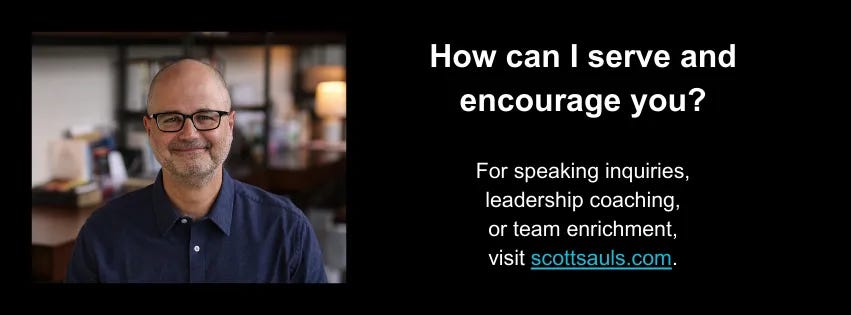We’ve all felt the sting of a loaded question. The kind that isn't really a question at all, but a trap—designed not to understand, but to expose, embarrass, or discredit. Maybe it came during a workplace discussion that veered into politics or religion. Maybe it was a subtle jab in a family gathering, wrapped in politeness but pulsing with challenge. Whatever the context, these moments can leave us flustered, defensive, or disheartened.
Jesus knew this experience intimately. On Holy Tuesday—the final week of His earthly life—He entered the temple courts and faced a series of encounters that were less about dialogue and more about entrapment. The religious elite, threatened by His growing influence, came not with open hearts but with carefully constructed questions meant to back Him into a corner. What unfolded, however, wasn’t His defeat, but an open display of His wisdom, grace, truth, and moral authority.
HOLY TUESDAY TEACHING ON VIDEO
NOTE: Video content is unique. It is not a replica of, but a companion to, this essay.
The Day the Questions Came
Matthew 22 gives us a glimpse into this extraordinary day.
The Pharisees and Herodians, despite their mutual disdain for one another, formed an unlikely alliance to ask Jesus whether it was lawful to pay taxes to Caesar. If He said yes, they could label Him a traitor to the Jewish cause. If He said no, they could accuse Him of insurrection against Rome. It was, in their minds, a no-win scenario for Jesus. But He didn’t bite.
Instead, He asked them to show Him a denarius—the coin used to pay the tax—and then offered a response that was as bold as it was clever: “Render to Caesar the things that are Caesar’s, and to God the things that are God’s” (Matthew 22:21). In one sentence, He exposed their duplicity and reframed the conversation altogether. This wasn’t about politics; it was about ultimate allegiance. The coin may bear Caesar’s image, but our lives bear God’s. And to Him, our lives rightfully belong.
Soon after, the Sadducees stepped forward with a different tactic. They posed a convoluted question about marriage in the resurrection—a resurrection they didn’t even believe in. Their goal wasn’t theological clarity, but ridicule and humiliation.
Again, Jesus answered with measured authority: “You are wrong, because you know neither the Scriptures nor the power of God” (Matthew 22:29). He reminded them that the resurrection is real, and that their failure to believe wasn’t due to logic, but to a spiritual blindness. In John’s Gospel, He makes it personal: “I am the resurrection and the life” (John 11:25).
Finally, a scribe approached—this time with what seemed to be a more earnest question: “Which is the greatest commandment in the Law?” Jesus replied with the most clear, concise distillation of God’s will for us: “You shall love the Lord your God with all your heart and with all your soul and with all your mind... and you shall love your neighbor as yourself” (Matthew 22:37–39). In saying this, He revealed that the whole of Scripture, the entire story of God’s redemption, hinges on love—love for God and love for others.
When Grace and Truth Go Hand in Hand
What’s striking about Jesus’ responses on Holy Tuesday isn’t just their brilliance, but their balance. He doesn’t argue for the sake of winning. He doesn’t avoid the questions, nor does He answer them on the inquirers’ terms. Instead, He listens carefully, sees through the schemes, and then responds with truth that is rooted in grace.
In our own lives, we often find ourselves in similar—if less public—scenarios. We may not be tested by religious scholars, but we’re certainly tested by skeptical coworkers, disillusioned friends or critics, or cultural narratives that insist on instant replies with zero dialogue or nuance. There’s pressure to say precisely the right thing, to defend ourselves, or to disengage altogether. But Jesus shows us a better way.
He never rushes. He doesn’t react with anxiety. He listens with discernment and speaks with the kind of clarity that only comes from deep communion with the Father. His words are few, but they are weighty. He never flinches, and yet He never wounds unnecessarily. There’s courage in His answers, but also kindness and compassion. And all of it flows from a place of settled confidence in the Father’s presence and the truth of Scripture.
This posture is not easy—but it is possible, even for us. And it begins not with clever words, but with a heart anchored in the love of God for us. When we are secure in who we belong to, we don’t have to scramble to defend ourselves. We can speak with both conviction and kindness. We can resist the temptation to escalate, or to take the bait when others try to. We can, like Jesus, keep turning our hearts toward the light—even when the sky is overcast.
Like Sunflowers in Clouded Skies
Tish Harrison Warren writes, “Like a sunflower following the sun, we are drawn to God’s presence, even when we cannot see Him clearly.”
The sunflower offers a kind of “creation parable” for days like Holy Tuesday. Even when the sun is hidden behind clouds, sunflowers turn toward where they know the light is. Their movement is not dictated by visibility, but by an inner orientation toward the source of life. Jesus, too, lived with this kind of holy awareness. Surrounded by other people’s traps, distractions, and agendas, He never lost sight of what mattered most: the Father’s will, the truth of Scripture, and the call to love.
That’s the call of Holy Tuesday. Not to win arguments. Not to run from the questions. But to see interrogation without curiosity for what it is: a form of manipulation. This day also calls us to stay oriented toward truth, trusting that even in the fog of agenda-laced confrontation or misunderstanding, we are not alone.
Living the Truth That Anchors
Holy Tuesday invites us to consider where our loyalties lie and what kind of people we’re becoming in the face of opposition and disingenuous “gotcha” questions. Jesus did not waver, not because the questions weren’t sharp, but because His heart was rooted in the Father, His (and our) sure and steady anchor. He trusted the Father. He knew the Scriptures. And He refused to separate truth from love.
May we do likewise. When we are questioned, may we listen with discernment. When we speak, may we do so with wisdom and grace. And when we’re unsure, may we look again toward the light of Christ, who still meets us in our confusion, still anchors us in His Word, and still teaches us, gently and powerfully, how to walk in both courage and compassion.
May the truth that anchored Jesus on Holy Tuesday be the truth that steadies you today.






Amen and thank you for a much needed offering.
Excellent reminder of patient replies - resist spiraling defense or analysis. Trust in the gentle power of God's truth.